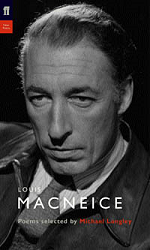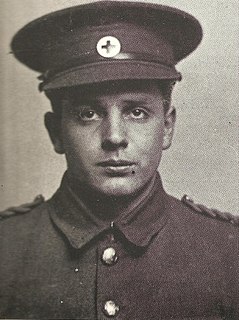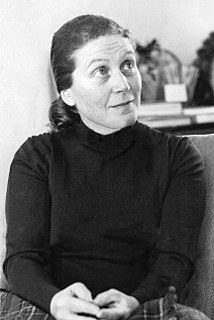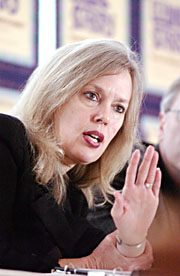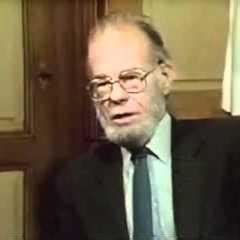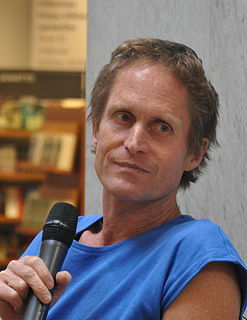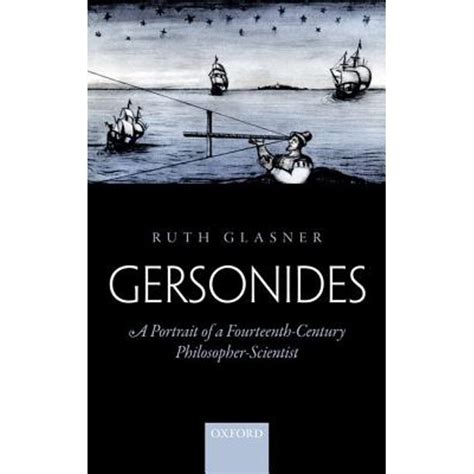Top 1200 True To Oneself Quotes & Sayings - Page 4
Explore popular True To Oneself quotes.
Last updated on December 19, 2024.
What is it in fact, this learning to fly? To be precise, it is 'to learn NOT to fly wrong.' To learn to become a pilot is to learn - not to let oneself fly too slowly. Not to let oneself turn without accelerating. Not to cross the controls. Not to do this, and not to do that. . . . To pilot is negation.
There is but One God, His name is Truth, He is the Creator, He fears none, he is without hate, He never dies, He is beyond the cycle of births and death, He is self illuminated, He is realized by the kindness of the True Guru. He was True in the beginning, He was True when the ages commenced and has ever been True, He is also True now.
Becoming a vegetarian is not merely a symbolic gesture. Nor is it an attempt to isolate oneself from the ugly realities of the world, to keep oneself pure and so without responsibility for the cruelty and carnage all around. Becoming a vegetarian is a highly practical and effective step one can take toward ending both the killing of nonhuman animals and the infliction of suffering on them.
My idea of elegance – and this refers to women as well as men – is that someone is elegant when he or she shows a good knowledge of what fits them, where you can find naturalness and self-esteem. Not showing off. Elegance is the idea of showing an optimistic depiction of oneself, and to lose oneself in the frivolity of style and fashion.
There is but One God. His name is Truth; He is the Creator. He fears none; he is without hate. He never dies; He is beyond the cycle of births and death. He is self-illuminated. He is realized by the kindness of the True Guru. He was True in the beginning; He was True when the ages commenced and has ever been True. He is also True now.
To be naked is to be oneself. To be nude is to be seen naked by others and yet not recognized for oneself. A naked body has to be seen as an object in order to become a nude. (The sight of it as an object stimulates the use of it as an object.) Nakedness reveals itself. Nudity is placed on display. To be naked is to be without disguises.
Few people today realize just how much faith in oneself (that part of oneself which is spiritual, perfect) has to do with achievement, because the great majority of people never seem to conceive of faith as being a genuine creative force. Yet the truth is that not only is Faith a bona fide power, but it is the greatest one we will ever encounter.
The blessed Paul argues that we are saved by faith, which he declares to be not from us but a gift from God. Thus there cannot possibly be true salvation where there is no true faith, and, since this faith is divinely enabled, it is without doubt bestowed by his free generosity. Where there is true belief through true faith, true salvation certainly accompanies it. Anyone who departs from true faith will not possess the grace of true salvation.
Pride is an established conviction of one’s own paramount worth in some particular respect, while vanity is the desire of rousing such a conviction in others, and it is generally accompanied by the secret hope of ultimately coming to the same conviction oneself. Pride works from within; it is the direct appreciation of oneself. Vanity is the desire to arrive at this appreciation indirectly, from without.
The only way to escape misrepresentation is never to commit oneself to any critical judgement that makes an impact - that is, never to say anything. I still, however think that the best way to promote profitable discussion is to be as clear as possible with oneself about what one sees and judges, to try and establish the essential discriminations in the given field of interest, and to state them as clearly as one can (for disagreement, if necessary).
It occurs to me that at the beginning one works passionately to learn photography. This takes years, and the craft is usually formed during this period. Then as time passes one finds oneself more in the role of serving the medium... Then, as in the example of several masters that I have been privileged to know personally, it appears that by having devoted oneself totally to the medium, one becomes photography.
In drawing attention to the physical characteristics of women leaders, they can be dismissed as either too pretty or too ugly. The net effect is to prevent women's identification with the issues. If the public women is stigmatized as too 'pretty,' she's a threat, a rival--or simply not serious; if derided as too 'ugly,' one risks tarring oneself with the same brush by identifying oneself with her agenda.
Nowhere have I found words more powerful than those in the Psalms. Their fervid poetry cleanses one, gives one strength, brings hope in moments of darkness. Makes one look critically into oneself, convict oneself, and wash one's heart clean with one's own tears. It is the ever-burning fire of love, of gratitude, humility, and truth.
The sort of dependence that results from exchange, i.e., from commercial transactions, is a reciprocal dependence. We cannot be dependent upon a foreigner without his being dependent on us. Now, this is what constitutes the very essence of society. To sever natural interrelations is not to make oneself independent, but to isolate oneself completely.
This willingness continually to revise one's own location in order to place oneself in the path of beauty is the basic impulse underlying education. One submits oneself to other minds (teachers) in order to increase the chance that one will be looking in the right direction when a comet makes its sweep through a certain patch of sky.
To pray is to pay attention to something or someone other than oneself. Whenever a man so concentrates his attention - on a landscape, a poem, a geometrical problem, an idol, or the True God - that he completely forgets his own ego and desires, he is praying. The primary task of the schoolteacher is to teach children, in a secular context, the technique of prayer.
The proper aim of education is to promote significant learning. Significant learning entails development. Development means successively asking broader and deeper questions of the relationship between oneself and the world. This is as true for first graders as graduate students, for fledging artists as graying accountants.
In a world full of danger, to be a potentially seeable object is to be constantly exposed to danger. Self-consciousness, then, may be the apprehensive awareness of oneself as potentially exposed to danger by the simple fact of being visible to others. The obvious defence against such a danger is to make oneself invisible in one way or another.
Not to find one's way in a city may well be uninteresting and banal. It requires ignorance - nothing more. But to lose oneself in a city - as one loses oneself in a forest - that calls for a quite different schooling. Then, signboard and street names, passers-by, roofs, kiosks, or bars must speak to the wanderer like a cracking twig under his feet in the forest.
Genuine recollections almost invariably explain oneself to oneself. Suppose, for example, that you feel an instinctive aversion to some particular kind of wine. Try as you will, you can find no reason for it. Suppose when you explore a previous incarnation, you remember you died by a poisoned administered in a wine of that kind, your aversion is explained by the proverb: 'A burnt child dreads the fire.'
The writing life requires courage, patience, persistence, empathy, openness, and the ability to deal with rejection. It requires the willingness to be alone with oneself. To be gentle with oneself. To look at the world without blinders on. To observe and withstand what one sees. To be disciplined, and at the same time, take risks. To be willing to fail - not just once, but again and again, over the course of a lifetime.
We enter solitude, in which also we lose loneliness. True solitude is found in the wild places, where one is without human obligation. One’s inner voices become audible. One feels the attraction of one’s most intimate sources. In consequence, one responds more clearly to other lives. The more coherent one becomes within oneself as a creature, the more fully one enters into the communion of all creatures.
What is freedom? It consists in two things: to know each his own limitations and accept them - that is the same thing as to know oneself, and accept oneself as one is, without fear, or envy, or distaste; and to recognise and accept the conditions under which one lives, also without fear or envy, or distaste. When you do this, you shall be free.
I feel like a small battlefield in which the problems, or some of the problems, of our time are being fought out. All one can hope to do is keep oneself humbly available, to allow oneself to be a battlefield. After all, the problems must be accommodated, have somewhere to struggle and come to rest and we, poor little humans, must put our inner space at their service and not run away.
Everything good is costly, and the development of personality is one of the most costly of all things. It is a matter of saying yes to oneself, of taking oneself as the most serious of tasks, of being conscious of everything one does, and keeping it constantly before one's eyes in all its dubious aspects.
Truth has no path. Truth is living and, therefore, changing. Awareness is without choice, without demand, without anxiety; in that state of mind, there is perception. To know oneself is to study oneself in action with another person. Awareness has no frontier; it is giving of your whole being, without exclusion.
Having a clear faith, based on the creed of the church is often labeled today as fundamentalism. Whereas relativism, which is letting oneself be tossed and Of all the ways of acquiring books, writing them oneself is regarded as the most praiseworthy method. Writers are really people who write books not because they are poor, but because they are dissatisfied with the books which they could buy but do not like.
Unrequited love may be painful, but it is safely painful, because it does not involve inflicting damage on anyone but oneself, a private pain that is as bittersweet as it is self-induced. But as soon as love is reciprocated, one must be prepared to give up the passivity of simply being hurt and take on the responsibility of perpetrating hurt oneself.
Because the true perfection of a practical occupation consists not only in knowing the actual performance of the occupation but also in its explanation, why the work is done a in a particular way, and because the art of calculating is a practical occupation, it is clear that it is pertinent to concern oneself with the theory.
I believe that love is the main key to open the doors to the "growth" of man. Love and union with someone or something outside of oneself, union that allows one to put oneself into relationship with others, to feel one with others, without limiting the sense of integrity and independence. Love is a productive orientation for which it is essential that there be present at the same time: concern, responsibility, and respect for and knowledge of the object of the union.
I think one of the things that I took from Mel [Bochner] specifically was his ability to look at oneself and one's relationship to the history of art and the practice of art at arm's length, the ability to sort of clinically and coldly remove oneself from the picture and to see it simply as a set of rules, habits, systems, moving parts.
How is it that some celebrities, whom the average person would believe to have all the popularity a human being could want, still admit to feeling lonely? It is quite naive to assume that popularity is the remedy for loneliness. Loneliness does not necessarily equal physical solitude, it is the inability to be oneself and rightfully represented as oneself.
Some people think that in order to lead a morally decent life one may sometimes have to forego the possibility of having a good life oneself. Even if that is true, it does not render morality incredible, but it does raise a question about morality's authority: about what one has most reason to do when one is faced with a conflict of this kind.
